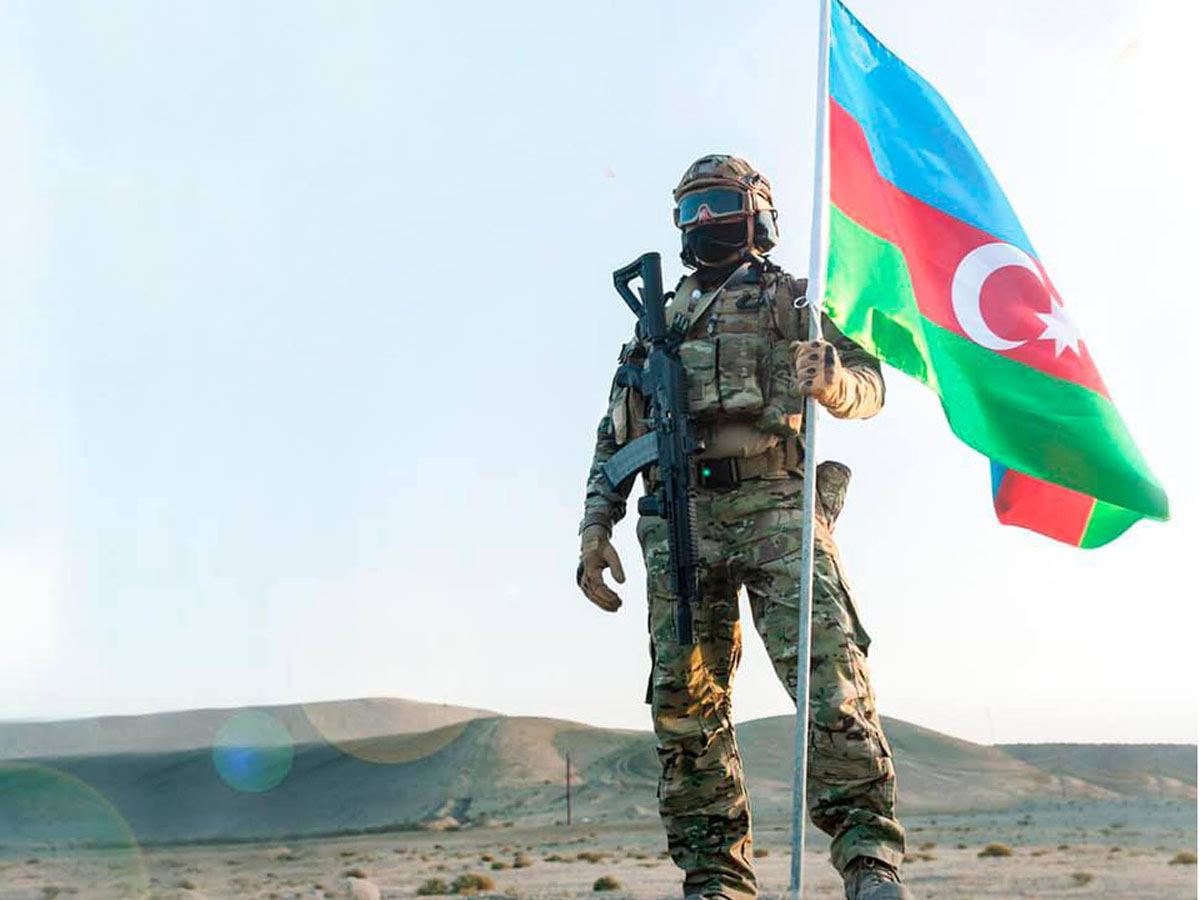Azerbaijan’s Armed Forces foiled on Saturday a provocation attempt of the illegal Armenian armed detachments in the Karabakh (Garabagh) region, the country’s defense ministry reported.
“In the morning of March 26, the members of the illegal Armenian armed detachment, taking advantage of foggy weather conditions and limited visibility, attempted to commit provocation against the units of the Azerbaijan Army,” reads a statement issued by the ministry.
Immediate preventive measures forced the saboteurs to retreat, according to a report.
According to the ministry, the facts about the incident have been conveyed to the command of the Russian peacekeeping contingent and the Russian-Turkish Joint Monitoring Center.
The attempt to commit a provocation followed the information spread by Armenian sources about the alleged escalation of tension by the Azerbaijani armed forces. In a statement issued on March 24, Azerbaijan’s Defense Ministry stressed that this information does not reflect reality and that the Armenian side tries to “create an atmosphere that can trigger deliberate hysteria, confuse and mislead the public.”
“Positions and deployment locations are being clarified on spot, no clashes or incidents have occurred,” the ministry reported.
Azerbaijan’s Foreign Ministry also blamed Yerevan for misleading the international community with such disinformation. The ministry called on the Armenian authorities to abandon political manipulation and start doing real work to maintain peace in the region.
“At present, the only way to ensure peace and stability in the region is the full implementation of the provisions of the joint statements, including the complete withdrawal of the remnants of Armenian illegal formations from the region and the normalization of relations on the basis of the principles of international law,” the ministry said in a statement on Friday.
Armenia and Azerbaijan had been locked in a decades-old armed conflict over the latter’s Karabakh (Garabagh) region. Following the Soviet Union’s dissolution in 1991, Armenia launched full-blown military aggression against Azerbaijan, marking the longest and deadliest war in the South Caucasus region. The bloody war ended with a ceasefire in 1994, which saw Armenia forcibly occupying 20 percent of Azerbaijan’s internationally recognized territories. Over 30,000 Azerbaijanis were killed, 3,890 went missing, and one million others were expelled from those lands in a brutal ethnic cleansing policy conducted by Armenia.
On September 27, 2020, the Armenia-Azerbaijan conflict took a violent turn when Armenia’s forces deployed in the occupied Azerbaijani lands shelled military positions and civilian settlements of Azerbaijan. During the counter-attack operations that lasted 44 days, Azerbaijani forces liberated over 300 settlements, including the cities of Jabrayil, Fuzuli, Zangilan, Gubadli, and Shusha, from nearly 30-year-long illegal Armenian occupation. The war ended with signing a tripartite statement by Armenia, Azerbaijan, and Russia on November 10, 2020. Under the agreement, Armenia also returned the occupied Aghdam, Kalbajar, and Lachin districts to Azerbaijan.
The document ordered the deployment of the Russian peacekeepers to the area and the complete withdrawal of the Armenian armed forces from the Karabakh region.
However, Armenia's authorities have failed to deliver on their commitments despite the relevant calls of the Azerbaijani authorities. The armed detachments are seen operating illegally in the Azerbaijani territories where the Russian peacekeeping mission is temporarily deployed.
The illegal armed gangs have been regularly firing at the positions of the Azerbaijani army and have also resorted to armed provocations, terror activities, and infiltration attempts. In addition, they have carried out engineering and fortification work, trying to build new positions, digging trenches, and creating a defensive zone.







 Armenian sappers commenced on Monday mine-clearance operations in the territories adjacent to the Saint Mary Church in village of Voskepar (Armenia...
Armenian sappers commenced on Monday mine-clearance operations in the territories adjacent to the Saint Mary Church in village of Voskepar (Armenia...
 Iran and Pakistan have signed eight cooperation documents in various fields, and agreed to strengthen ties to fight terrorism in the region.
Iran and Pakistan have signed eight cooperation documents in various fields, and agreed to strengthen ties to fight terrorism in the region.
 President Aliyev emphasized the critical role of the North-South Transport Corridor in fostering transport cooperation between Azerbaijan and Russi...
President Aliyev emphasized the critical role of the North-South Transport Corridor in fostering transport cooperation between Azerbaijan and Russi...



